Pere Ubu - Interview
by Erick Mertz
published: 23 / 12 / 2017
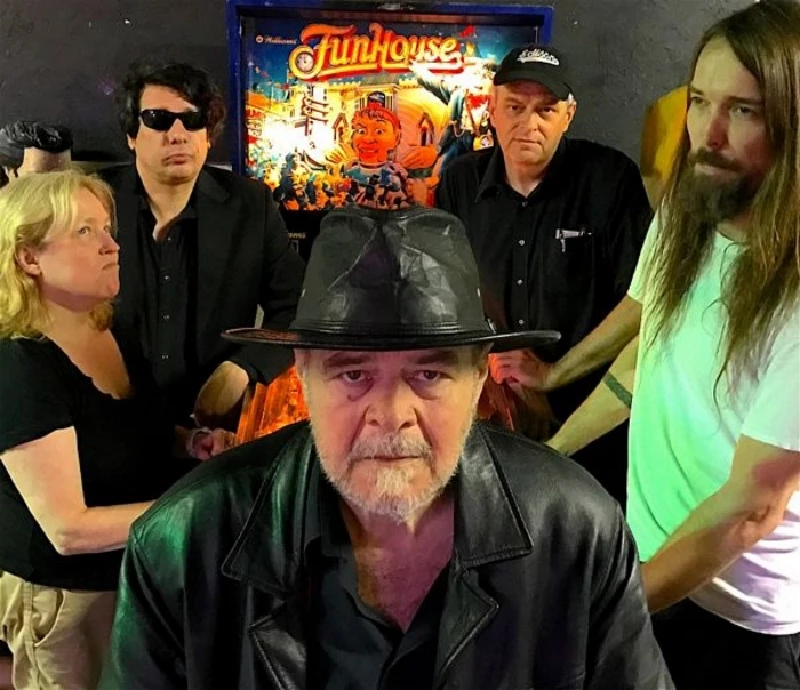
intro
Erick Mertz talks to David Thomas, the front man with influential alternative rock act Pere Ubu, about his group's experimental new album, ‘20 Years in a Montana Missile Silo’.
As the jittery, speed demon guitar line races off the line of ‘Monkey Bizness’, the opener of Pere Ubu’s sixteenth LP, ‘20 Years in a Montana Missile Silo’, it’s clear that the band still has it. After four long decades though, it is as hard now to define what “it” is as it was on ‘The Modern Dance’, an album with a similarly frenetic opening track, ‘Non-Alignment Pact'. The mystery of what makes the engine powering Ubu tick though isn’t so difficult. “Go baby go,” front man David Thomas shouts on ‘Monkey Bizness’ and it becomes quite clear that this is his record as each of the others have been as well. His hypnotic, acerbic every man vocal style raps on the bluesy ‘Funk 49’ and pleads to transcend his worldly confusion on ‘Prisoner of the Senses’ which is quintessential Ubu. The thoroughly modern speaker is delusional, a state of existence due almost entirely to myopic view. The instrumentation on ‘20 Years in a Montana Missile Silo’ is vintage as well. Almost every song feels like an air raid alert, whether that has the virtue of screeching guitars as it is on ‘Toe to Toe’ or the swirling disassociation of ‘Plan From Frag 9’ which leaves a lot to the imagination. Forget the fraught struggle with modernity though. Pere Ubu has always been adept at capturing a universal sensibility, some songs just timeless. Every record seems to have one, and here it’s ‘The Healer’, a song that bares everything. Looking at ‘20 Years in a Montana Missile Silo’ on strictly its own merits is tough; it is a Pere Ubu record after all, which means it has to stack up against a whole lot, from the static buzz of pop culture to underground rock to the core aspects of recorded sound. Talking to David Thomas, we covered these things and surprise, much more. PENNYBLACK: You've been making music for a really long time. I'm curious to know your thoughts on how Pere Ubu would be different if you had started the band today. DAVID THOMAS: I don't know that I would start a band today. I don't know that. I mean, we were of a time and a place and an urgency. We were conscious of a generational window. We saw the window coming and we understood that we were there to go forward. I don't know what I would do. I would probably just get a job at Staples or something. PB: Do you feel like the music industry, as it's now constructed, sets up bands like yours for the kind of generational success that you have had? DT: Oh, the music industry now, I don't know. I don't like to talk about this issue because it's silly. I've always been free because am still willing to pay the price to get free. And freedom has a price. It might have been easier to pay the price back then. In years past, musicians were laying their lives on the line, which sounds dramatic. I guess culturally the idea that you can record anything and put it up on the internet for distribution seems like a snap to the outsider. It feels like the peak of what art has been striving for a while, since cave paintings, the simplicity with which artists can create and distribute what you're pointing at. PB: I've always felt there is a real confrontation in your music, going all the way back to ‘Non-Alignment Pact.’ How do you as an artist keep that feeling of confrontation in your music? DT: I'm pretty natural because I’ve just got a bad attitude. I distrust common wisdom. I distrust what we commonly know. PB: Regarding the title of the new album, ‘20 Years in a Montana Missile Silo’. Can you elaborate on that title? DT: I wanted to create a sense of emerging from isolation. ‘20 Years…’ is about a grown man who dedicates his life to something, and every day he goes home to his wife and kids. The album title was not some post-apocalyptic thing, or some cold, nuclear paranoia. It’s just some guy who has to face what he has to face each day. PB: You've described your artistic process as a “gestalt of culture geography and sound.” Can you put this album into that context? DT: My overall plan, my five or ten year plan is to have what amounts to an orchestra. We're going to be do some truly dangerous stuff. Because, I really don't care. PB: Does the lack of physicality in music change how you feel about being a musician? DT: I mean, they have their iPhones, Internet and all that sort of stuff. And they abuse it. We are returning to wanting the physical. You know, it’s the sort of hipster fascination with vinyl. They're buying vinyl, only never a record player. Human beings want physical things, but I've devoted the last few years to exploring the realms of sound above human hearing where all of this digitization is happening. I think if you really apply yourself, and you work at it, and study it, you can get MP3 sound which is pretty damn good. PB: We have a Record Store Day. Everything has to have a day of celebration. DT:I guess everything has to take part in the mass victimizations. Everybody wants to be a victim. But one can only hope that this obsession will pass. Makes me think of the great tulip escapade of the 17th Century, where flowers were the most expensive commodity in the world, more precious than gold. Then the whole thing collapsed, so one can always foolishly hope that people will come to their senses. But I don't believe it. PB: A couple of Ubu songs were picked up for ‘American Horror Story’. Talk about what that felt like, being connected to something so huge culturally as an underground band. DT: I don't react well to that. That was basically my reaction. I don't watch the show. I don't have a television. The drummer played me a couple of clips where a song appears and it worked very well. After decades of disappointment, one or two little triumphs doesn’t really turn the tide. PB: I never recognized the connection you had with Paul Hammond. Talk about that long-term relationship in the studio. DT: He and his father were the only engineers we worked with for almost forty years. It was a unique relationship. It was an understanding. The most cherished memory I have is just sitting there with him not saying a word for hours all day long. I'd look at him and he'd make the adjustment. PB: It always feels to me like a Pere Ubu song conveys the narrow part of the hourglass. Almost as though there's a lot that goes in, and there's a lot of feeling that comes out, but you give us a type of minimalistic view. DT: It's a different way of writing material and songs that to me seems the most obvious way to be doing things. There's one narrative line that runs at an angle, and this one contradicts it, and here’s one that is utterly irrelevant to it. Just like you know in this phone call there is a little squeaking or artifact going on. But it's part of it because the car driving by outside my window has no relevance at all to the narrative of this conversation. It is a great shame that this new movement was short-circuited by the punk movement, or whatever you want to call it. You know it basically wiped everything out. We were in 1975 on the cusp of a new world. We had Television. There were a bunch of bands, all of them predating punk in America. They were all brilliant. I'm like Khrushchev at the United Nations, screaming, “We will bury you.” PB: Most music writers would describe punk as something that opened music up. You're talking about punk as something that closed things down. DT: Oh, absolutely shutting down. I mean you know let's forget this nonsense and let's talk about it. It was totally a part of the corporate machine. It was Sony Corporation and others. It’s like they all said. This new thing has to be stopped and it had to be shut down. It has to be returned to this simplistic other. PB: How do you feel when people say Pere Ubu is a punk band? DT: I don't fly into a rage or anything. I say, we're not a punk band. Take the simple answer. PB: Really meaningful to you must be having a musician, like Christoph Hahn, who is so moved by your music that he wants to be a part of it. DT: That is far more moving, yeah One of the greatest moments that I will recall in my last moments on Earth was at the Royal Festival Hall when I was introduced to Brian Wilson as the American genius, David Thomas. PB: Are you excited for this upcoming tour? DT: I just do the show and get off the stage. I don’t know if I get pumped up or not. PB: Thank you.
Band Links:-
http://www.ubuprojex.com/https://en-gb.facebook.com/official.ubu/
https://twitter.com/ubuprojex
https://en.wikipedia.org/wiki/Pere_Ubu
Picture Gallery:-
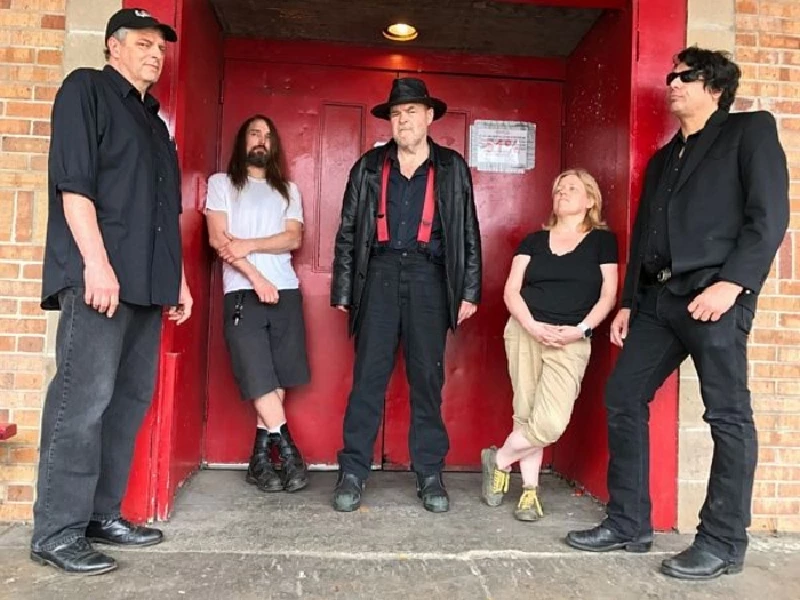
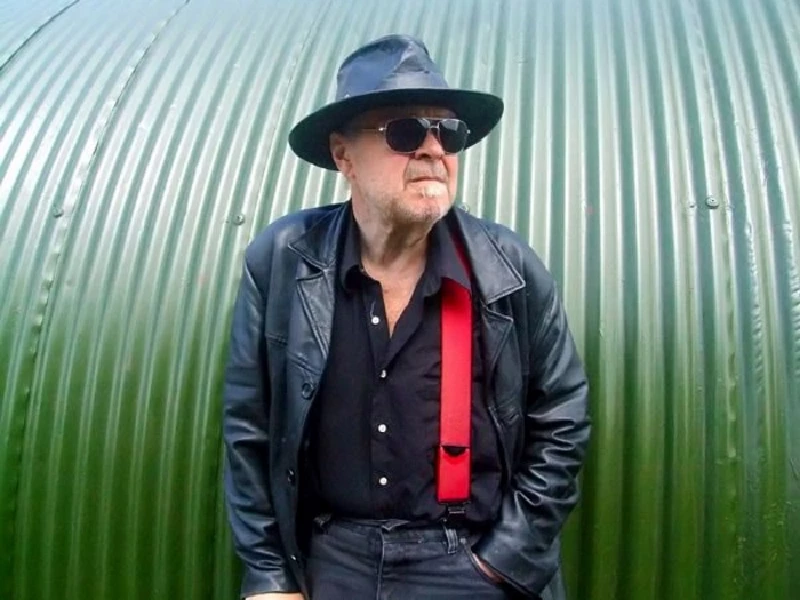
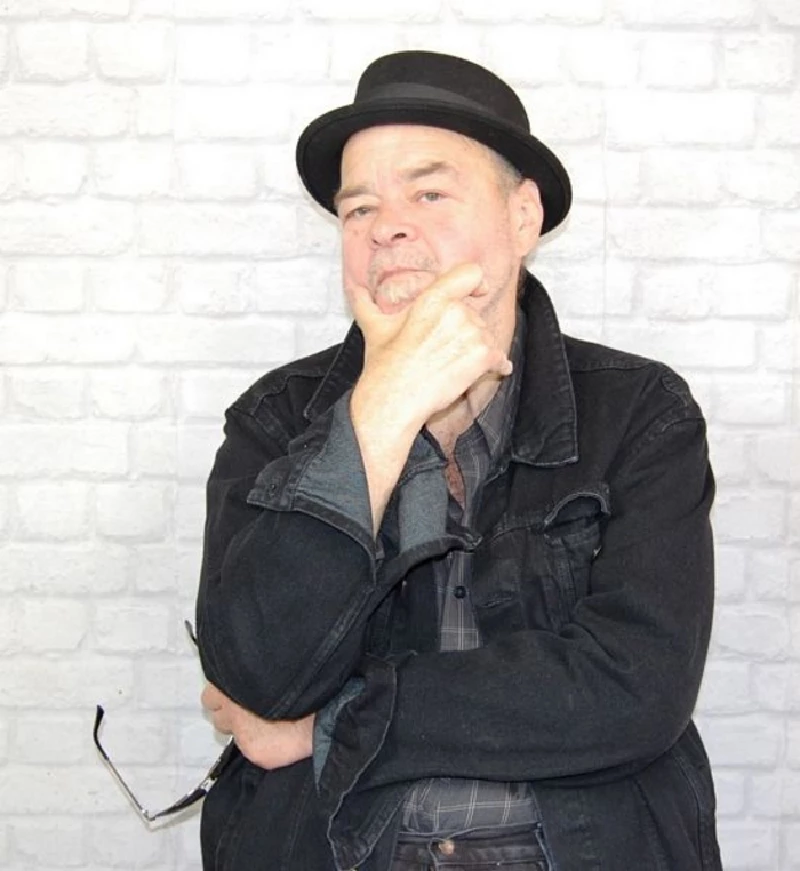
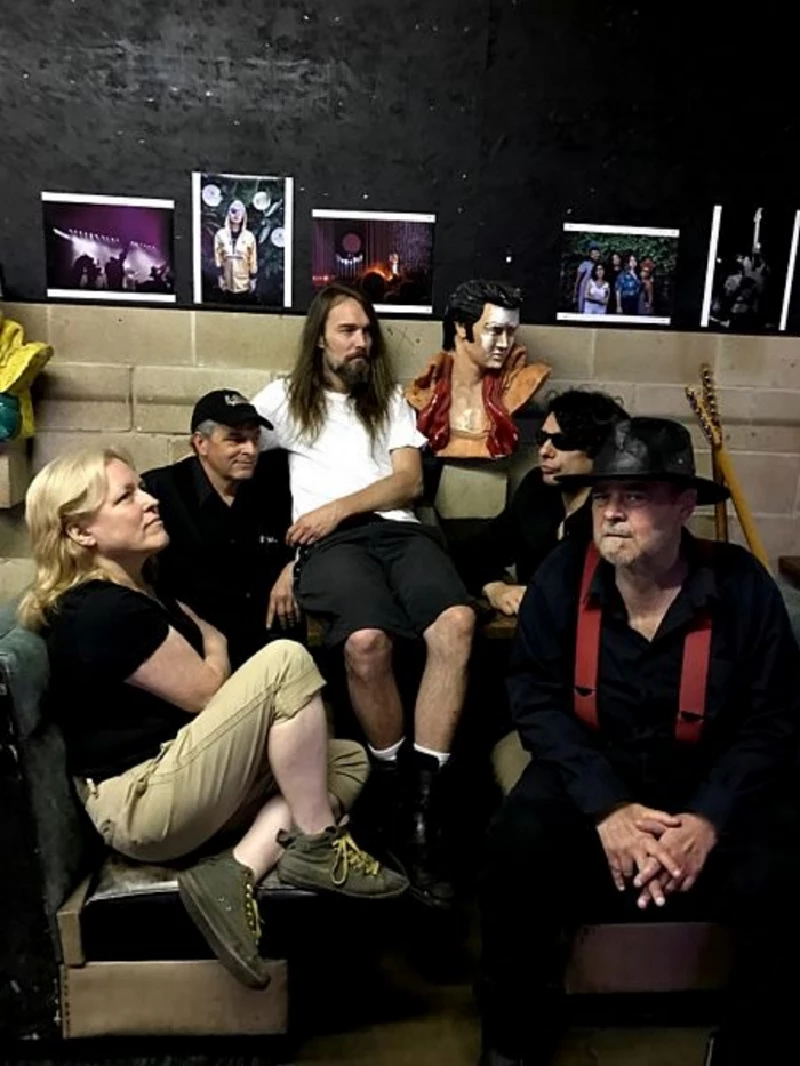
interviews |
|
Interview (2012) |
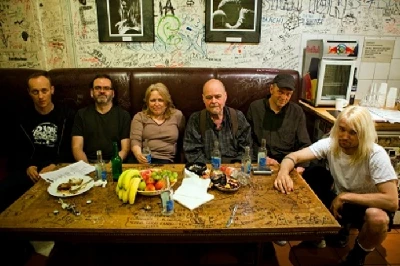
|
| Mark Rowland talks to David Thomas, the front man with influential alternative rock act Pere Ubu, about his band’s new ‘dance’-influenced album, ‘The Lady From Shanghai' |
| Interview (2009) |
| Interview (2008) |
| Interview with David Thomas (2006) |
| Interview with David Thomas (2005) |
| Interview with David Thomas (2004) |
| Interview (2004) |
profiles |
|
A Self-Indulgent Reflection on David Thomas (2025) |
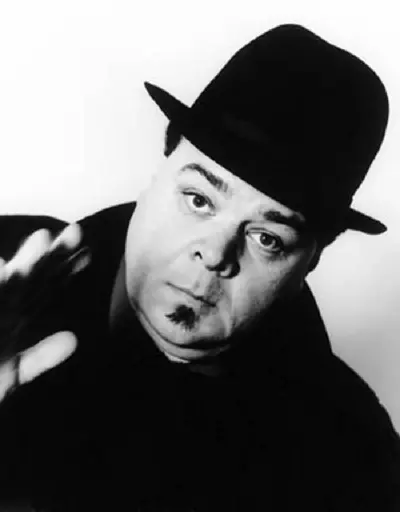
|
| Mark Rowland reflects on four interviews with Pere Ubu’s notoriously cranky frontman David Thomas, who died in April. |
live reviews |
|
Musician, Leicester, 12/11/2014 |
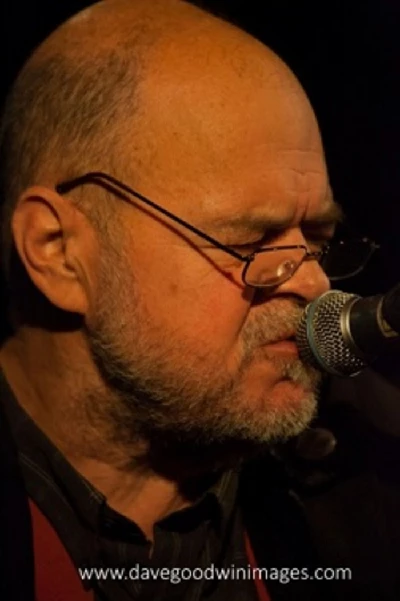
|
| Dave Goodwin at the Musician in Leicester watches Peru Ubu play a confrontational yet brilliant double set of experimental rock |
| Blackheath Halls, London, 27/2/2010 |
| Islington Academy, London, 18/9/2005 |
favourite album |
|
The Modern Dance (2006) |
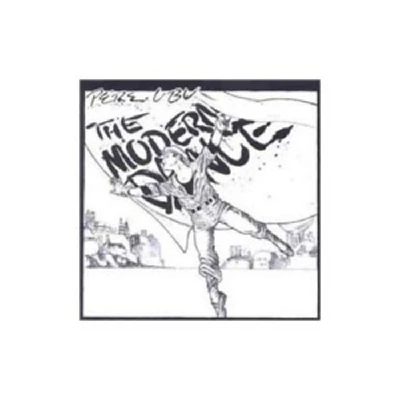
|
| For our 'Re : View' slot, in which we look back on old albums, Mark Rowland writes about Pere Ubu's 1976 classic debut album 'The Modern Dance', which has recently been reisssued |
| Dub Housing (2002) |
reviews |
|
Lady From Shanghai (2013) |
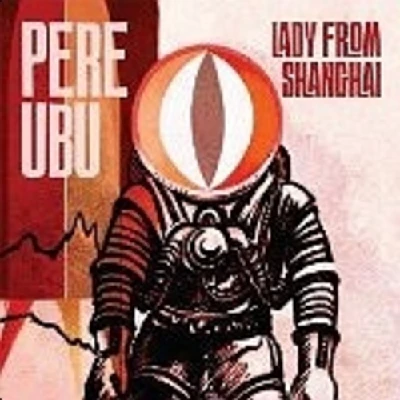
|
| Complex, but compelling fourteenth album from Cleveland avant-garde rockers, Pere Ubu |
| Long Live Pere Ubu (2009) |
| Why I Hate Women (2006) |
| St Arkansas (2005) |
most viewed articles
current edition
Carl Ewens - David Bowie 1964 to 1982 On Track: Every Album, Every SongArmory Show - Interview with Richard Jobson
Bathers - Photoscapes 1
Colin Blunstone - Thalia Hall, Chicago, 16/7/2025
Visor Fest - Valencia, Spain, 26/9/2025...27/9/2025
Billie Eilish - O2 Arena, London, 10/7/2025
Robert Forster - Interview
Loft - Interview
John McKay - Interview
Editorial - July 2025
previous editions
Heavenly - P.U.N.K. Girl EPManic Street Preachers - (Gig of a Lifetime) Millennium Stadium, Cardiff, December 1999
Oasis - Oasis, Earl's Court, London, 1995
Trudie Myerscough-Harris - Interview
Beautiful South - Ten Songs That Made Me Love...
Pixies - Ten Songs That Made Me Love...
Prolapse - Interview
Simon Heavisides - Destiny Stopped Screaming: The Life and Times of Adrian Borland
Paul Clerehugh - Interview
Doris Brendel - Interview
most viewed reviews
current edition
Amy Macdonald - Is This What You've Been Waiting For?Sick Man of Europe - The Sick Man of Europe
Alice Cooper - The Revenge of Alice Cooper
Phew, Erika Kobayashi,, Dieter Moebius - Radium Girls
Davey Woodward - Mumbo in the Jumbo
Lucy Spraggan - Other Sides of the Moon
Blueboy - 2
Cynthia Erivo - I Forgive You
Philip Jeays - Victoria
Lapsley - I'm a Hurricane, I'm a Woman In Love
Pennyblackmusic Regular Contributors
Adrian Janes
Amanda J. Window
Andrew Twambley
Anthony Dhanendran
Benjamin Howarth
Cila Warncke
Daniel Cressey
Darren Aston
Dastardly
Dave Goodwin
Denzil Watson
Dominic B. Simpson
Eoghan Lyng
Fiona Hutchings
Harry Sherriff
Helen Tipping
Jamie Rowland
John Clarkson
Julie Cruickshank
Kimberly Bright
Lisa Torem
Maarten Schiethart